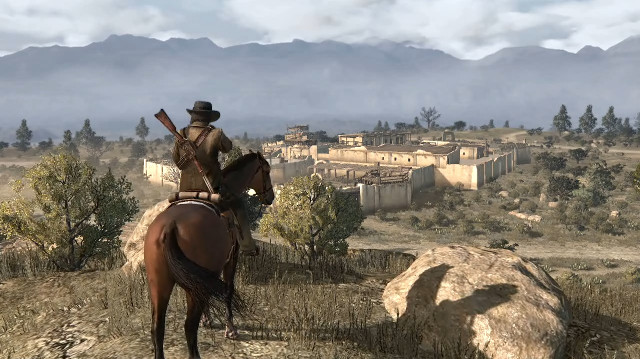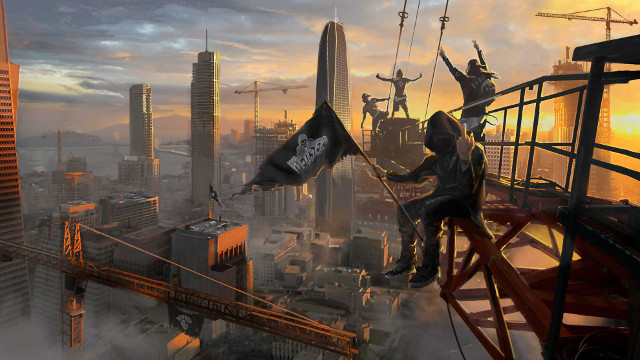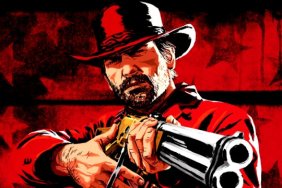From the City of Angels to the Big Apple, real life locales have become commonplace in gaming as giant open world sandboxes. Millions of players can say they’ve been to Los Angeles, Chicago, and Boston without stepping foot outside their homes.
But, it takes a lot more than an expansive city to make an open world game worth playing–the setting, while important, is only a part of the unique experience. In order for the city you’re exploring to feel real, developers have to figure out how exactly to shape the missions and storyline to fit a particular setting, and it’s no easy feat.
The most common problem open world games run into is engagement. Time and time again developers create a detailed copy of New York or London, and they fill it with bland fetch quests and meaningless collectables. If you want to feature a city as more than a backdrop, it needs to be integral to the experience.
Take Infamous: Second Son, developer Sucker Punch created a beautiful depiction of Seattle torn apart by explosions and police occupations and yet few missions really took advantage of the city’s many landmarks. Instead side missions are copied and pasted into different zones throughout the city, making it feel like you’ve done the same thing over and over again.

By the time I was finished I felt like I didn’t experience anything Seattle had to offer, all I had done was spray paint a few walls, blow up a few towers, and destroy a whole lot of security cameras.
While Ubisoft and Sucker Punch are trying to shoehorn Seattle and Chicago into their games, Rockstar is getting New York and Los Angeles just right. They didn’t populate Grand Theft Auto IV, L.A. Noir, or Red Dead Redemption with zones to capture and call it a day. They actively use their setting as a character in their games.
Rockstar created a story that centered around the struggle of coming to America– a narrative that’s important to the history of immigration in New York. From arriving at the docks during the games introduction until you’re in an intense helicopter chase around the Statue of Happiness, the game's characters and story represent a fantastic stereotypical view of New York.
And it didn’t stop there, the Three Leaf Clover mission where you and the McReary brothers hold up The Liberty Bank, is a prime example of a city taking part in its missions. After robbing the bank, you fight through wave after wave of police, running from helicopters overhead. Eventually you make your way into New York’s premiere transportation service, the subway.

Instead of being restricted to a few small indoor locations or focusing on non-descript parts of the the city, Three Leaf Clover creates a fantastic getaway scene through the New York Subway system, it’s not often that you get to run through a fully operational train station with an semi automatic machine gun.
It’s little things like the inclusion of the subway that show that the developer thought of the city and how it can shape mission structure. Not all cities have major subway systems, but why not take advantage of a city’s unique features when the opportunity arises? It something that any gamer can appreciate, familiar with the area or not.
When Ubisoft chose to explore Chicago in it’s new IP, Watch Dogs, they created cookie cutter base infiltrations and target hunting missions that did nothing special. Nothing in the game gave character to the Windy City, much like the game's main character, Chicago was flat and unimaginative.
Now Ubisoft is getting a second chance with Watch Dogs 2, one of the few games that chose San Francisco as it’s setting. I’ve grown up around San Francisco so I’m worried about how Ubisoft will handle the city by the bay.

There are so many chances for unique missions based off things in the city, maybe you’ll have to slip in a mechanical baseball into the Cubs dugout to prevent a Giants bullpen meltdown, maybe there can be a startup on Alcatraz that you have to infiltrate, or there could be crazy traffic on the bay bridge that you have to navigate through.
It doesn’t matter how the city is incorporated into the game, but that incorporation has to be unique and special to it’s setting. Infamous: Second Son’s Seattle and the original Watch Dog’s Chicago are prime examples of these intricate settings being used as nothing more than a gritty backdrop.
I’m hopeful that Ubisoft has learned from their mistakes with the original Watch Dogs and will inject some life into their depiction of San Francisco. Even though I’ve spent more than 20 years catching ball games at AT&T Park, sailing in the murky bay, and catching movies in the mission I’m eager to jump into the virtual version of my favorite city.







